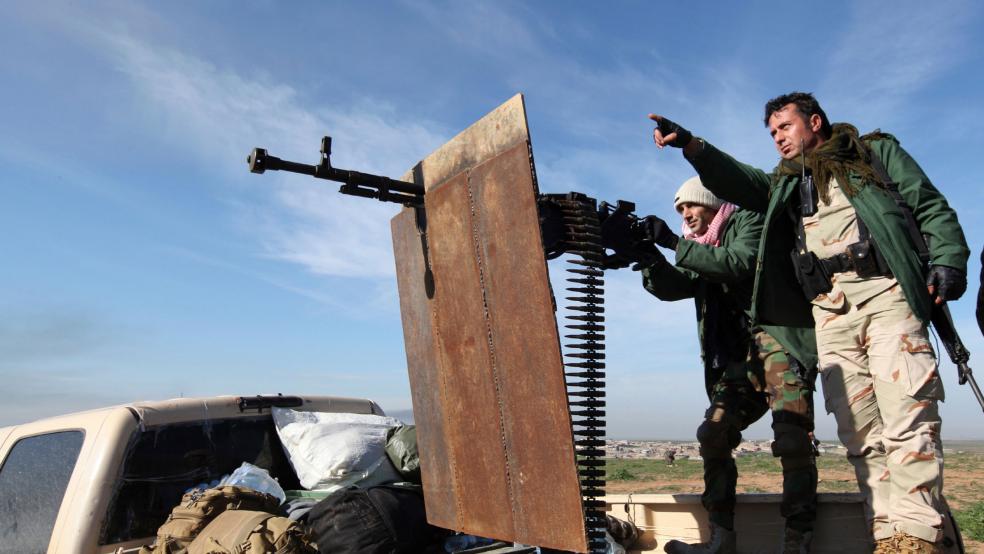A top US commander warns Caribbean and South American countries are unable to track 100 foreign fighters that could return from Syria.
With little ability to track and monitor foreign fighters when they return, it would be relatively easy for those fighters to “walk” north to the U.S. border along the same networks used to traffic drugs and humans, according to Gen. John Kelly, commander of U.S. Southern Command.
“They don’t have that ability to track these folks,” Kelly said at a Pentagon briefing on Thursday.
Related: This Lethal Laser Could Take Out ISIS and Other Enemies
Kelly said he worries whomever is radicalized enough to leave for Syria would return with greater terrorism skills and motivations.
“I would suspect they’ll get good at, while they’re in Syria, get good at killing and pick up some real job skills in terms of explosives and beheadings and things like that. And everyone’s concerned, of course, if they come home. Because if they went over radicalized one would suspect they’ll come home at least that radicalized.”
There is no indication of any scheme to attack the United States he said, but Americans “take for granted” the nation’s functioning legal system, agencies like the FBI and the layers of uncorrupt law enforcement that can monitor and track potential terrorists like in the United States. “A lot of these countries just don’t have that.”
Related: 3 Hidden Messages Behind ISIS's Bloody Rampages
Kelly said that some of the fighters are recruited and radicalized off the Internet but that there are “a couple of pretty radical mosques” in the region, as well. “A hundred certainly doesn’t seem like a lot, it’s not, but the countries they come from have [a] total inability to deal with it,” he said, naming Jamaica, Trinidad & Tobago, Surinam and Venezuela, in particular.
With little military threats to the United States in his region, Kelly is a frequent advocate for helping law enforcement attack the network — and root causes — of illegal drug and human trafficking into the United States. People, he said, travel freely and “simply walk across borders” in some cases where there is little to stop them.
“It’s the old story of you gotta watch them,” he said. “The CIA,FBI and people like that do a really good job tracking the networks, but you know it only takes – look, there’s a lot of people coming and going, it only takes one to cause you problems.”
Related: Iraqi Forces Have ISIS on the Run in Tikrit
With those caveats, Kelly’s concern does not reflect ‘ISIS at the border’ alarmism, rather he casts a watchful eye on the potential trouble of South American, Central American and Caribbean states in tracking returning fighters for themselves. The solution to preventing ISIS from coming through the southern hemisphere will require law enforcement and intelligence partnering with every state in the region, he said.
“The network that comes up through the isthmus and Mexico that carries anything and everything on it … the amount of movement is what I think overwhelms our ability – and the sophistication of the network – overwhelms our ability to stop everything,” he said.
“I think if they get back to some of these countries that I’ve described, it’s pretty easy."
This article originally appeared in Defense One.
Read more at Defense One:
Pentagon to Launch Hacker Proof Helicopter Drone
Senate Panel Launches Cybersecurity Bill
Don't Blow Up An Effective Iran Bill




